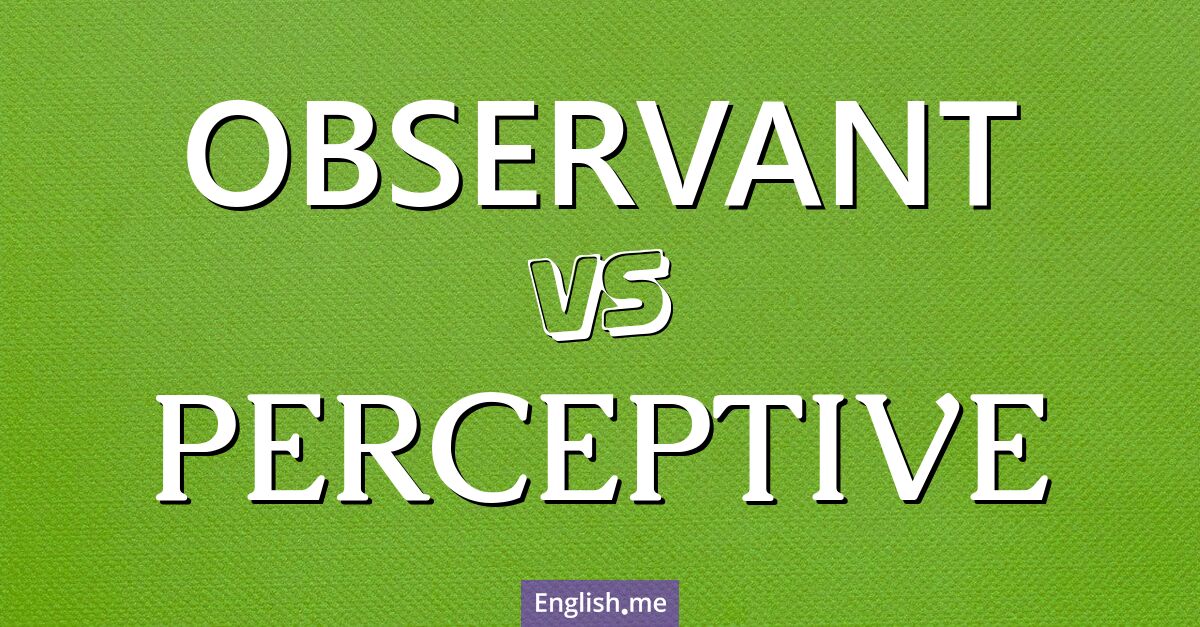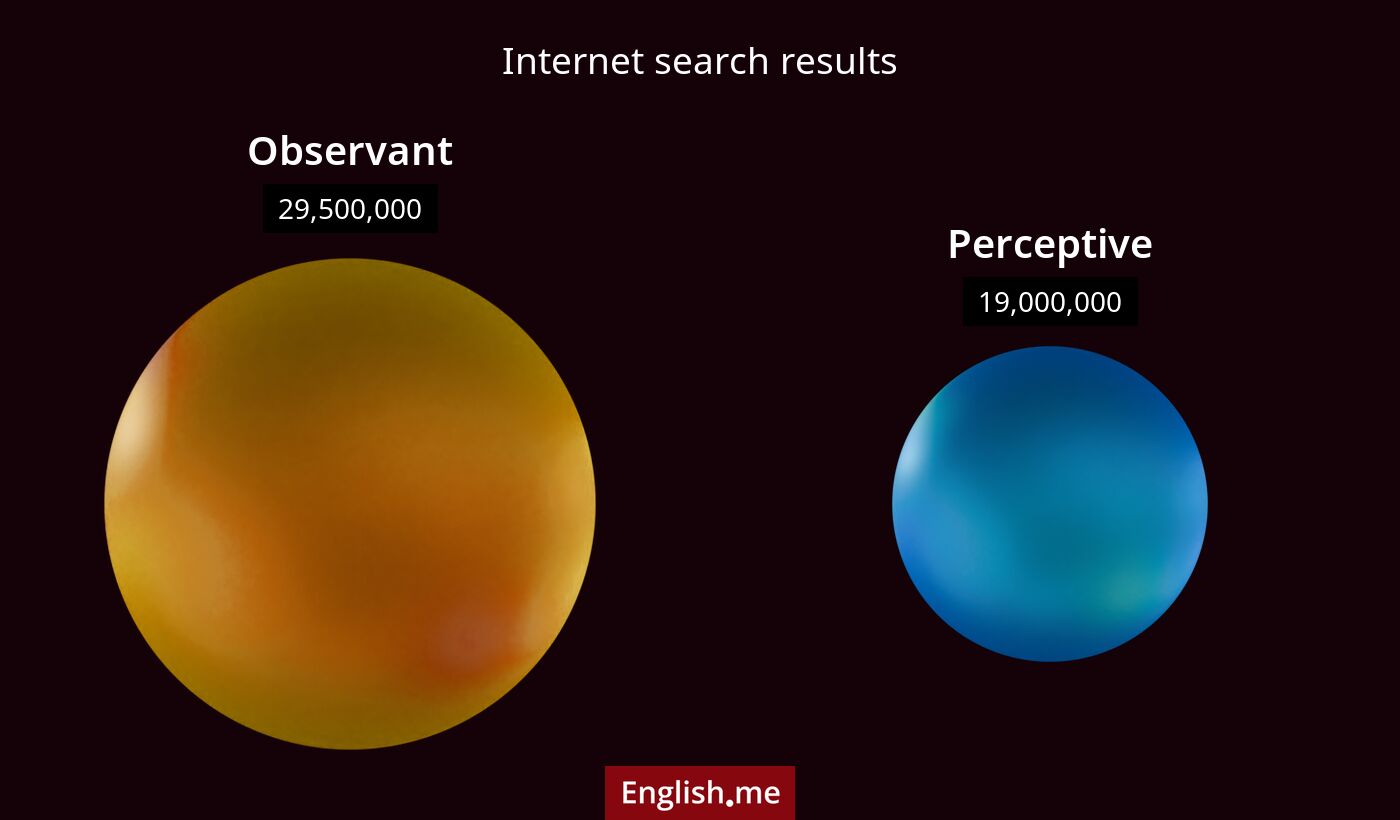"Observant" vs. "perceptive": spotting the fine line
Reviewed and edited by  Lloyd Cooper 18/10/2024, 12:17
Lloyd Cooper 18/10/2024, 12:17
English.me team member

 What is similar?
What is similar?
Both "observant" and "perceptive" describe a person's ability to notice and understand things quickly and accurately. They both pertain to the quality of being keenly aware and attentive to details.
 What is different?
What is different?
While "observant" primarily focuses on the ability to notice things in the environment, often involving careful watchfulness or attentiveness, "perceptive" emphasizes the ability to understand and interpret things with insight or intuition. "Perceptive" is more about grasping underlying meanings or patterns, whereas "observant" is more about being alert and noticing what is happening.
 Which one is more common?
Which one is more common?

 Examples of usage
Examples of usage
Observant- She was very observant and noticed even the smallest changes in her surroundings.
- The observant student quickly spotted the error on the board.
- His observant nature made him an excellent detective.
- Her perceptive comments during the meeting impressed everyone.
- He was very perceptive and could tell when someone was upset even if they didn't show it.
- The review was insightful and perceptive, revealing layers of meaning in the film.

 English
English español
español française
française italiano
italiano deutsche
deutsche 日本語
日本語 polski
polski česky
česky svenska
svenska Türkçe
Türkçe Nederlands
Nederlands